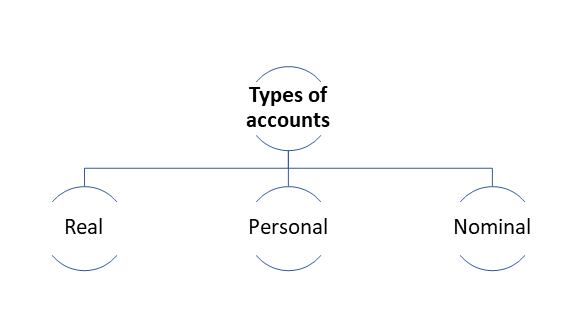Golden Rules of Accounting
Updated on 2023-08-29T11:57:46.465266Z
What are the golden rules of accounting?
Every process has rules which are followed by all and are universally applicable. These rules carry significant value as they define core function and are the centre of focus. Similarly, the field of accounting too has certain stated rules known as the golden rules of accounting. The golden rules of accounting are –
- Debit the receiver and credit the giver.
- Debit what comes in and credit what goes out.
- Debit the losses and expenses and credit the gains and income.
Summary
- Golden rules of accounting are central to the accounting operations of firms and institutions.
- Accounting is the practice of bookkeeping and maintaining financial records in an organised manner.
- There are three golden rules of accounting.
Frequently Asked Questions (FAQs)
How important is accounting in a business?
Accounting practice can be traced from the Mesopotamian civilization. Luca Pacioli was the father of accounting and introduced the concept of double entry bookkeeping. Accounting stands for the practice of recording financial transactions and keeping the records in a systematic manner. Accounting includes updating the accounts on regular basis and providing an accurate picture of the financial condition of the company.
Accounting aims at providing clarity in the business transactions which further help the business in making decisions based on the cash flow, tax liabilities and expenses. Through accounting, three statements can be generated –
- Firstly, the profit and loss statement project the income and the expenses.
- Secondly, the balance sheet projects the financial position of the company.
- Thirdly, the cash flow statements are used to keep track of the cash used and generated through the business activities.

What are the advantages of utilizing the golden rules of accounting?
- Business records maintenance – It is crucial for ensuring the success of the business that the records are maintained and updated regularly. To take full advantage, it is important that the transactions are maintained in a systematic way.
- Financial statement’s preparation – When the accounting is practised accurately than the financial statements such as the balance sheet, profit and loss account and the cash flow statements can be prepared accurately.
- Financial results can be compared – With the application of the golden rules of accounting, a firm can conduct a comparison with the previous year’s performances or can compare the financial performances with the competitive firms.
- Decision making – The financial information becomes trustworthy when golden rules are applied, then based on the reliable information, the leaders and the senior management can take decisions for the future growth of the company.
- Legal matters – To safeguard the entity from all the legal matters, it is important that all the transactions are recorded in a sound manner and can be presented in front of the authority as and when required.
- Taxation – In case, any organisations are using faulty accounting practices, it will result in paying incorrect taxes which can attract penalties from the regulatory authorities and can impact the business reputation as well.
- Regulatory compliance – The regulatory compliances help in maintaining the soundness of the business in the economy with accuracy in the accounting practices, it will become easy for the organisations to meet all the regulatory requirements.
- Business valuation – With accuracy in the accounting practices, the business will be able to calculate the accurate value of the operations and help the organisations in expanding their business by receiving funding.
- Future projections – An organization can make accurate predictions for itself by employing strong accounting practices, that is, by utilizing the golden rules of accounting.
What are the types of accounts as per the rules of accounting?

The accounting rules are applied in the ledger account which covers, the assets, liabilities, gains, incomes, losses, expenses, creditors, debtors to name a few. The accounts are divided into three ledger accounts.
Real account – The real accounts only include the transaction which is related to the business assets. Therefore, the golden rule associated with the real account will only be applicable to the sales, purchase, disposal, and depreciation of the assets. The golden rule for a real account is, the asset account is debited when they come into the business and credited when they go out of the business. For example, when machinery is purchased, then the machinery account is debited. When a product is sold, then the product account is credited.
Personal account – The personal account records the transactions which are related to any type of person. There are three types of persons–
Natural persons: Account of a human being is included in the personal account such as John’s account, William’s account and so on.
Artificial person: The accounts which are created by the law and do not exist in person are known as the artificial account. For example, a bank’s account, or business account.
Representative account: These accounts represent a group of people or an individual. For example, the prepaid expense account represents the payment made in advance to a particular group of people or an individual.
In the personal account, when the person receives anything from the business then, the person is debited. When the person gives something to the business, then they are credited. For example, if Mr. X receives a product from a business, then the business will debit Mr. X’s account. Similarly, when Mr X, pays the company and becomes a giver, then Mr. X’s account will be credited.
Nominal account – The accounts which are related to the expenses, profits, the payment received, and loss are included in the nominal account. The expenses and the losses encountered by the firm are debited. On other hand, the profits and the income by the business are credited. For example, the firm must pay salary to the employees which is an expense for the firm, post which the salary account will be debited. When the firm receives interest on their investment, interest is an income for the firm, therefore, the interest received account will be credited.